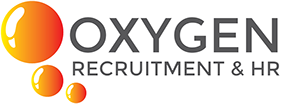10 Tips for Interview Success.
It’s an awesome feeling when you get the call that you’ve progressed to the interview for a job. Make sure you’re ready to put your best foot forward with Oxygen Recruitment’s top tips for success. You’ve got this!
- Dissect the job description.
Go through the job description and make a list of the key duties and responsibilities and then write down at least one way you can address each of those. Ask your recruiter if you’re having trouble understanding anything in the job description.
- Do your homework on the organisation.
Go to the company’s website and find out how they work, from organisational structure through to corporate values. Do an Internet search on the organisation and their CEO and read any media updates so you’re across current developments. Have a look at ways you can work your knowledge into interview answers. You could even use company news as an ice breaker in the introduction, letting the panel know you have been reading about their exciting new expansion plans.
- Do your homework on the interview panel.
Find out exactly who will be interviewing you and search for them on the organisation’s website. Take note of their position and key responsibilities within the company. Check out their LinkedIn profile and do an Internet search to find out about their professional achievements. However, be sure to not pry into personal information, which means no Facebook stalking. No one wants to hear that you have been looking at his or her personal social media profiles.
- Think about how you will present yourself.
Through your progression in the application process and your research you should have a good feel for the organisation’s dress standards. If other employees always wear suits, go for a suit. If you’re unsure it’s best to opt for formal presentation over casual dress. Neat and tidy is always a winner as it allows the interview panel to concentrate on what you’re saying, not what you’re wearing.
- Assess your communication skills.
Be honest with yourself about the areas of your verbal and non-verbal communication that could use some work. Do you say um a lot? Do you have a tendency to touch your hair when you’re nervous? Ask a friend or your recruiter for an assessment of your communication weaknesses and make a plan to address them. Sometimes simply being aware of our nervous tics can be all we need to make sure we don’t overdo them. If you know verbal communication is not your strong point practice interviews can be of enormous benefit.
- Review your CV.
Go back over your CV and think about your key achievements. You will need to be ready to expand on examples of professional projects you have completed and milestones you have achieved in recent roles. If you can, have technical examples and facts and figures at the ready to support your achievement claims. You can take supporting information into the interview if you need it there as a backup but be careful not to read directly from reports or refer to it too much.
- Be ready to talk behaviour.
Employers are really interested in hearing about how you have responded to difficult situations, for example, how you managed negative stakeholder feedback. Think about behavioural-based interview questions you could be asked and plan appropriate responses. Your response should cover how you implemented positive impact behaviours in previous roles and the success that resulted.
- Keep your responses timely.
One of the most successful skills in an interview is to strike a balance between answers not being too short and those that waffle on for too long. Your responses need to provide direct answers to questions, backed by personal examples. Write out responses to questions, go over them and omit any superfluous information. It might be interesting, and even impressive, that your organisational skills extend to teaching your dog to collect and sort your mail, but it’s not really that relevant to a prospective employer, is it? You want to demonstrate your enthusiasm but be careful not to be too jovial. If you haven’t interviewed for some time get a friend to do a mock interview with you.
- Be prepared to answer some tricky questions.
We’ve all been there. That interview when a question comes your way and you want to run out the door. You stumble over the answer and then kick yourself three hours later when you think of the perfect response. Be prepared to answer tough questions by having a think about any difficult or challenging aspects of the position you are interviewing for. Think about how you will approach questions around remuneration, start dates, hours, conditions and referees. And be prepared to provide an honest explanation of why you’re looking to move on from your current position.
- Punctuality is priceless.
It sounds obvious but being on time is something that can be easily overlooked in the interview process. No one wants to be that person phoning reception to say they will be 10 minutes late because… Well, it doesn’t really matter why. If you’re late, you’re late, and it won’t leave a great impression. Don’t book any appointments before your interview and allow yourself plenty of travel time. Aim to be at the reception desk at least five minutes early so you have time to sit and settle in the waiting room. If you can, give yourself a few minutes outside the building, take a few deep breaths, relax and remind yourself how well prepared and qualified you are for this position.
Looking for more interview advice, or want to connect with some fantastic job opportunities? Feel free to get in touch with us.
